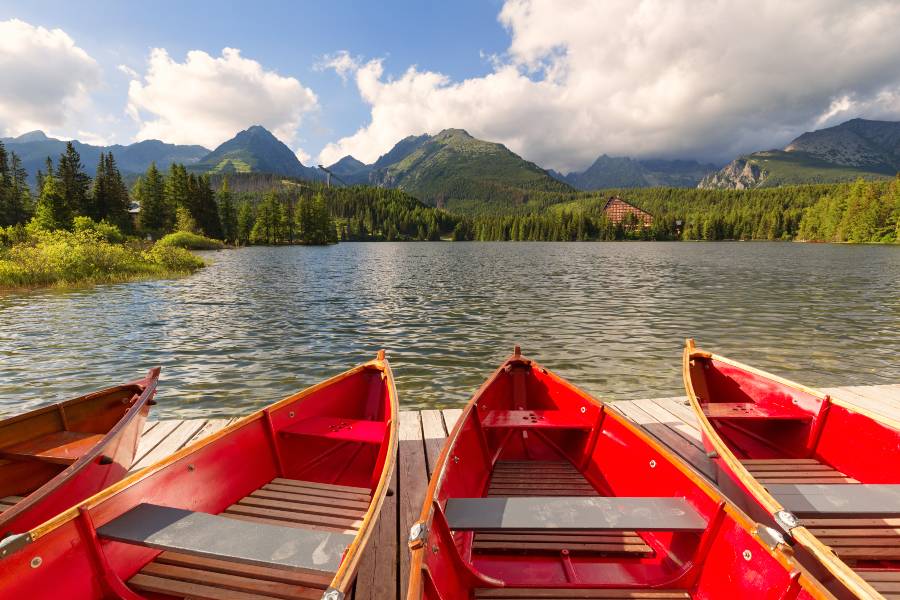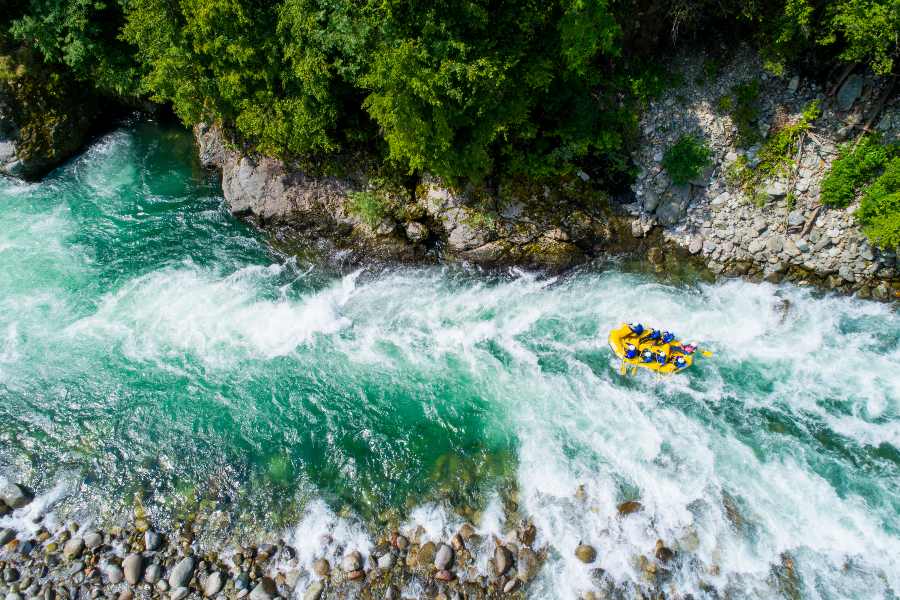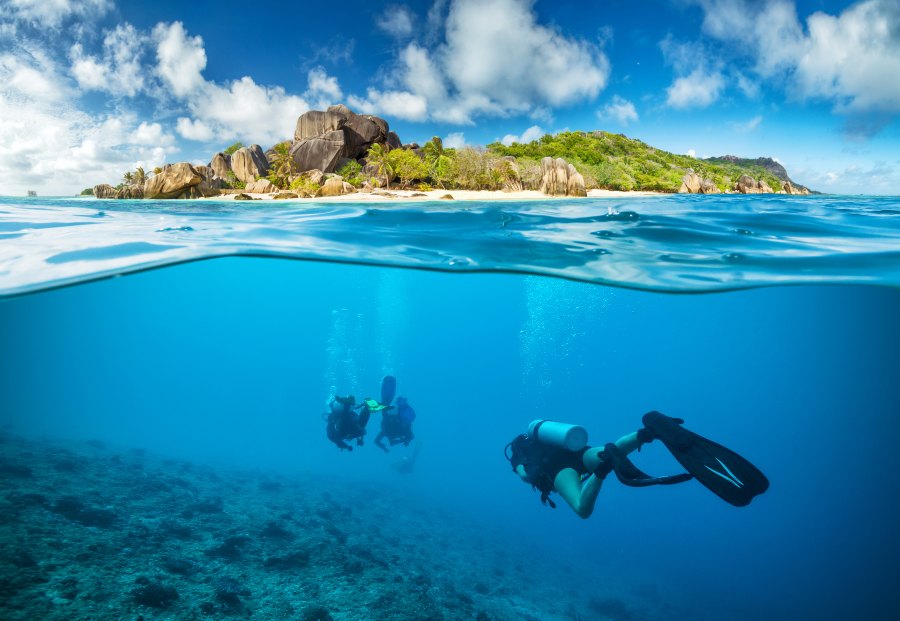We all recognize that travel contributes to climate change and our individual carbon footprints matter now more than ever. If you’re a tourism professional or keen to see progress, perhaps you might consider how to start an ecotourism business.
And, instead of viewing travel as a detriment to the planet, what if ecotourism can be a force for good?
According to a survey conducted by Booking.com, 84% of travelers believe sustainable travel is vital to the planet’s health. So, with more guests googling their way to a more earth-friendly vacation, ecotourism is set up to capture the next phase of conscientious travelers.
Did you know that the pandemic resulted in a 7% decrease in carbon emissions? With climate change sticking around, UNTWO states that carbon emissions will need to decrease by 50% by 2030 to reduce further negative environmental impacts.
So, why should you invest in an ecotourism business?
Why choose ecotourism
As the global population grows and more people travel longer distances, conventional travel bears the brunt of having a largely negative impact on the climate. Experience providers may start to feel the need to re-evaluate the impact of the tourism industry.
So, as a tour operator, you might be wondering how to positively contribute to the conservation of our planet?
Learning how to make your existing tourism business more green comes with a few worthwhile investments. Essentially, ecotourism aims to educate and encourage travelers to consider the impact of their choices.
Often revolving around nature-based activities and outdoor adventures. guests may be more easily swayed to participate in activities that contribute to the surrounding community.
It’s becoming increasingly apparent that tourism’s longevity depends on cutting back carbon emissions.

What are some ecotourism examples
For tourism professionals and visitors, ecotourism providers offer hands-on learning opportunities and guided experiences.
Most ecotourism businesses include:
- education and insights into local culture
- conservation initiatives that protect environmental biodiversity, marine and/or wildlife
- opportunities to learn from and live like a local
Ecotourism has become the latest trend in a world where there are endless activities and tours for guests to choose from. And these visitors often perceive ecotourism as an outdoor activity that invites them to explore the environment with little negative impact.
For travelers to shift from conventional travel to ecotourism, the increased value of the experiences must be hard to ignore. As you start ecotourism, you’ll want to delve into various options to see what suits your plans best.
10 Ecotourism Business ideas
- Accommodations
- Cycling and walking tours
- Culinary experiences
- Kayak adventures
- Hiking and trekking trips
- Whale watching
- Safaris
- Scuba-diving
- Visiting animal sanctuaries
- Wilderness excursions

How to start an ecotourism business
Creating an ecotourism business doesn’t have to be daunting. In fact, when looking at how to start an ecotourism business, you may find inspiration from different cultures and regions.
Thankfully, you can learn by observing how smaller communities interact with the local landscape, resources and wildlife.
One area of tourism that strongly relies on community involvement is Indigenous Tourism. Approaching ecotourism with a three-pronged approach contributes to residents’ economic, environmental, and social benefits.
An increase in responsible tourism means that visitors can recognize their role as part of a bigger picture. Usually, education and hands-on experiences are interwoven. For instance, guests might venture to a remote area for wildlife viewing while also gaining a better understanding of the local destination.
Easy ecotourism ideas to start with:
- Alternative transport options like cycling, scooters and walking
- Sharing local and sustainable dining options
- Improved maintenance & repair methods aimed at reducing waste
- Installing accessible water taps and encouraging guests to bring reusable bottles
- Using eco-friendly cleaning products
Brainstorm ecotourism experiences
If a competitor offers something similar to your ecotourism business, consider starting up a complementary activity or arranging a partnership.
The first step in building an ecotourism business is brainstorming ideas aligned with your goals. Lean into your inspiration, allowing a wealth of ideas and possibilities to lead you to become more niche in your market.
Develop a strong foundation for your eco-travel business by inviting community members to act as lead guides and storytellers. Who better to start a conversation than those who live there?
Land on your ecotourism niche
Choosing what to offer depends on where you’re located. Let’s say you’re thinking of offering water sports and rentals, you’ll need ease of access to a lake or oceanfront location.
Perhaps you’re thinking of building out wilderness accommodations for guests — you’ll need a property that can house guests on site. Or maybe you’re passionate about wildlife or old-growth forests or educating guests about the biodiversity of the surrounding landscape.
You might look into offering smaller-scale eco-accommodations or low-impact walking tours for your guests. And, the more clarity you gain about what’s close to your heart, the more likely you’ll build your business up from a solid foundation.
Ultimately, the direction you choose will depend on a few factors — like your passions, target market and skill set.
Get to know your competition
If you’re entering a saturated market, you might find it difficult to build up steam surrounding your ecotourism business. This is not to say a valid idea doesn’t warrant exploration — just that it may require additional effort to build momentum with your ecotourism business.
Market research will provide pricing ideas, trends and seasonality associated with your specific region. To become an eco-tour operator, you’ll need to do a bit of research specific to your industry and develop a sense of where competitors are cornering the market.
Explore partnerships
Consider your competition as potential for collaboration, peer support or partnership opportunities. Market research will help you discover your competition, understand demand and develop a deeper understanding of the viability of your ecotourism business idea.
Being selective regarding local partnership businesses reflects who you are as a company. If they participate in unethical activities, your association with them will act as a stamp of approval. This is why it’s best to choose wisely and make sure their core values align with your own.
Making your ecotourism business official
Register your eco-travel business
After you decide on a name, you’re ready to make things official by registering your business. Depending on your unique arrangement — you’ll want to look at the pros and cons of choosing sole proprietorship, partnerships or registering as a corporation.
Name your business
Like naming children, choosing a name for your eco-tourism business can be a challenge. There’s a lot of pressure to decide on a name that will represent your business destiny and accurately define what you do.
Plus, your tour name will be used in all of your branding, marketing material and registration. Before committing to a name, make sure the one you choose is both memorable and descriptive and — that the web domain is available.
Ideally, you want to select a name that’s easy to spell and captures what you offer.
Get your tour business license, insurance and permits
While every business is different, if your ecotourism business involves guiding the public, you’ll want to explore the necessary licenses and permits — a task that’s typically done once you’ve registered your tour business. Check with your local municipality to acquire a tour business license.
You might need to obtain additional permits and licensing based on where you are operating. In addition, you’ll need to account for the type of ecotourism business you’re operating — whether you will be using any vehicles or motor vessels.
Open a business bank account
To make life easier, you’ll want to do is open a bank account that separates your business finances from your personal bank account.
By opening a business bank account, you’ll be better able to track your expenses and revenue, making accounting easier. And in that same train of thought, you might want to consider hiring an accountant or signing up for accounting software.
Purchase liability insurance
Protect your business, and yourself, by getting liability insurance. While insurance costs can vary greatly, becoming properly insured means protecting your company against most risks.
A reputable insurance company can guide you on your coverage needs, and it’s worth doing your research.
If you’re on the hunt for an insurance provider, Tourpreneur has some great discussions through their Facebook group. Plus, you’ll also find more information about business insurance here. Some commonly required in the tourism industry are Commercial General Liability (CGL), Property Insurance, and Accounts Receivable Insurance.

Design your ecotours
Craft your ecotourism brand story
The heart of your ecotourism business is to create a compelling story that details your experiences. An easy way to phrase this is to verbalize what you aim to accomplish and how you plan to go about doing that out loud.
Record yourself speaking about your ecotourism brand. This helps your description to flow naturally and highlights how you feel about the ecotourism business you’ve created.
A clear narrative makes your tour more memorable and you can always adjust your story, as it develops over time. The goal is to have your guests share what they learned in the weeks that follow.
Create your business plan
When designing your overall vision for your ecotourism experiences, a business plan acts as your guiding light. It will help to identify your strengths and weaknesses, along with opportunities and threats — better known as a S.W.O.T. analysis.
A matter-of-a-fact blueprint outlines your goals, profitability and anticipated market, keeping you on track as your ecotourism business grows.
Before you start creating your marketing material, you’ll need to define what makes your ecotourism business stand apart.
Draft your Unique Selling Proposition
With a business plan in hand, the next step in building the foundation for your ecotourism business is to write out your unique selling proposition. Known as a USP, it explains what makes your tour stand apart from the competition.
With guests in mind, your USP showcases the benefits travelers get by booking with you — like how you provide ethical travels & tours. Ideally, your market advantage should be defined in one sentence and be easy to understand.
Decide on pricing for your eco-tours
With many ways to approach it, pricing can be a complicated process. To land on pricing that accounts for your expenses, margin and profits, make sure you take the time to evaluate your market.
Then, once you feel good about the value of your tour, it’s time to set your prices. Factor in your operating costs and market comparisons, to help get a sense of what customers are willing to pay.
Unfortunately, there is a gap between how eager customers are to participate in responsible tourism and how much more they’re willing to pay.
Pricing may not be consistent throughout the year. You’ll want to keep seasonality and volume in mind, as well as pricing differences for small children and groups. Remember you can always adjust pricing to make sure your tour prices cover your costs and inspire visitors to book.

Launch Your Tour
Host Your Friends and Family
As you prepare for a successful business launch, you’ll want to do a few test runs.
For a more strategic launch, try creating teaser content on social media. This can help to cultivate interest and start growing your following before your ecotourism business goes live.
As another option, you can also start by hosting a few friends and family members for preliminary feedback. Think of it this as your dress rehearsal.
Go through the eco-tour from start to finish and request feedback through an automated email or verbal prompt as your experience comes to a close. Then, once you’ve worked out any kinks, you’ll be ready to launch your eco-tours.
Marketing your ecotours
When marketing your tours, lead with your unique selling proposition or USP, which highlights what makes your tour business special. Aim to lead with awareness, education and helpful content that makes it easy for guests to see why they should choose you.
Over time, visitors will recognize your tour brand and understand what your ecotourism business stands for. As the saying goes, the proof is in the pudding. Similar to how guests want to enjoy an advertised experience, truly sustainable tourism depends on the individual provider’s commitment to making it happen.
Ultimately, you want glowing feedback surrounding your eco-tours to show up on social media and feed into real-life interactions. Savvy travelers will likely explore options online before signing up for an eco-experience.
Look into eco-certification
Keep in mind that when it comes to certification and branding for your tours, guests are more inspired by action.
To help you decide whether to become certified, explore Rainforest Alliance to learn more about sustainable tourism practices.
For more valuable resources, connect with local tourism boards and research the Global Sustainable Tourism Council for additional eco-certification information.
Sign up for an online booking system
Phew! You’re nearly there. All of this hard work in creating an ecotourism business can be demanding, but rewarding once you see results.
Guests expect to be able to find you easily and book when they want. Ideally, you want visitors to book, pay and create reservations right on your website.
To do this, you need an online booking system. Your booking software can process in-person and phone reservations. Here are a few links that will help you find the best platform for your eco-tours:
- What is an Online Booking System?
- Why You Need An Online Booking System
- Request a demo to see how Checkfront can fit within your business
Final thoughts
Building an eco-tour business from the ground up is admirable and can pay dividends.
Your work will never stop between understanding your niche to grow your customer base, designing a tour, building relationships, your brand, online presence, and funnelling customers through the door.
While it may feel like there are a lot of pieces to pull together — you can do it.
Start with following these steps and your intuition to create a roadmap for your ecotourism business.
Committed to learning more about running an ecotourism business?

Take your business to the next level
Online bookings. Flexible pricing. Outstanding support.



